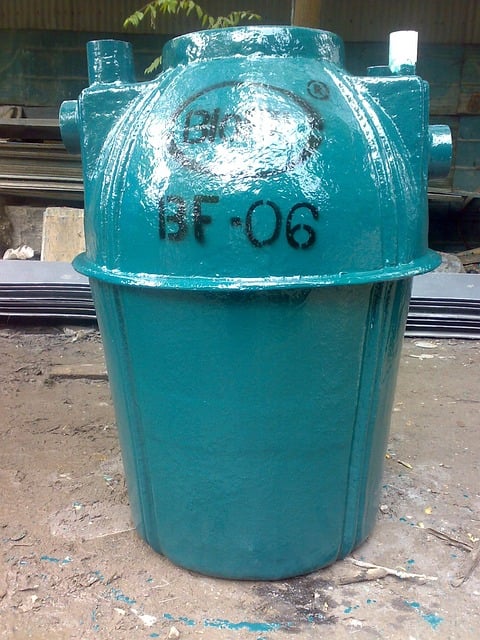A septic system is a complex network that treats wastewater through natural decomposition in a tank. Components like pumpers and pipes distribute and remove waste. Regular maintenance, including annual inspections, pumping, and mindful flushing, prevents clogs, backups, and costly repairs. Homeowners can handle minor issues but should seek professional help for leaks, contamination, or severe clogs. Proper septic system care ensures reliability and environmental safety through optimal performance and adherence to eco-friendly practices.
“Maintain your septic system like a pro with our comprehensive guide! Discover the secrets to keeping your essential waste management infrastructure running smoothly. We break down the intricacies of septic systems, explaining their components and how they work harmoniously. Explore practical maintenance practices for optimal performance, from regular inspections to effective cleaning techniques. Learn to troubleshoot common issues and know when to call in expert help. Embrace proactive care for your septic system with our ultimate guide, ensuring a healthy and efficient waste management solution.”
- Understanding Your Septic System: Components and Their Function
- Regular Maintenance Practices for Optimal Performance
- Troubleshooting Common Issues and When to Call a Professional
Understanding Your Septic System: Components and Their Function

A septic system is a complex network designed to treat and dispose of wastewater from your home or business, safely and efficiently. At its core are several key components that work in harmony to facilitate this process. The first is the septic tank, where solid waste separates from liquid waste. This tank captures solids, allowing them to decompose naturally over time. Above ground, pumpers and pipes distribute incoming sewage into the tank while removing treated effluent for discharge into a drainage field or watercourse, depending on your system setup. Regular septic system maintenance is crucial to ensure these components function optimally, preventing clogs, backups, and costly repairs. By understanding how each part contributes to septic system maintenance, property owners can better care for their systems, ensuring they remain reliable and environmentally safe.
Regular Maintenance Practices for Optimal Performance

Regular maintenance is key to keeping your septic system running smoothly and efficiently. By implementing simple practices, you can prevent costly repairs and ensure optimal performance. Schedule annual inspections to assess the overall health of your system, including checking for any leaks or blockages in pipes and drains. Regular pumping every 3-5 years is also essential to remove accumulated solids from the tank before they escape into the drain field.
Additionally, be mindful of what goes down your drains. Avoid flushing non-biodegradable materials like disposable wipes, sanitary products, and grease. These items can disrupt the natural balance within your septic tank and clog pipes. Instead, use eco-friendly alternatives and properly dispose of hazardous waste to keep your septic system in top condition.
Troubleshooting Common Issues and When to Call a Professional

If your septic system is experiencing issues, don’t panic! There are several common problems that homeowners often encounter and can be addressed with some basic troubleshooting. Look out for signs like clogs, slow drains, foul odors, or gurgling sounds, which might indicate a problem with your septic tank or pipes. In many cases, you can try flushing non-biodegradable items down the drain less frequently, using bio-enzymatic cleaners to aid in breaking down waste, and ensuring regular pumping of your tank (typically every 3-5 years) to prevent solid accumulation.
However, if the issue persists or involves more complex symptoms like tank leaks, surface water contamination, or severe clogs, it’s time to call in a professional. Septic system maintenance specialists have the tools and expertise needed to diagnose intricate problems accurately. They can perform thorough inspections, pinpoint specific issues, and offer tailored solutions, ensuring your septic system runs smoothly for years to come. Regular professional maintenance is key to avoiding costly repairs and keeping your septic system operating efficiently.
Maintaining your septic system is an essential aspect of responsible property ownership. By understanding the key components and their functions, implementing regular maintenance practices, and being equipped to troubleshoot common issues, you can ensure your septic system operates smoothly for years to come. Regular care not only prevents costly repairs but also promotes environmental sustainability by minimizing the impact on local water sources. Embrace these practices as part of your homeownership journey, ensuring a healthy and efficient septic system that supports both your comfort and the well-being of the community.
